The Importance of First Aid Training in the Workplace
In today’s fast-paced work environment, ensuring the safety and well-being of employees should be a top priority for any business. One of the most effective ways to foster a safe workplace is by offering comprehensive first aid training to employees. First aid training equips individuals with the skills and knowledge to respond to emergencies, potentially saving lives, preventing injuries from worsening, and even reducing recovery times. The significance of such training cannot be overstated, especially in environments where the risks of accidents or health emergencies are prevalent.
The Basics of First Aid: What Is It?
First aid is the initial assistance provided to someone suffering from a minor or serious injury or illness. This aid is given until full medical treatment is available or the person recovers sufficiently. First aid can range from treating small injuries like cuts and burns to managing severe conditions like cardiac arrest or shock.
A trained first aider is equipped with knowledge to assess situations quickly and determine the best immediate action to take. The idea is not just to save lives, but also to prevent minor injuries becoming more serious. For example, properly cleaning and dressing a wound can prevent infections that could lead to further health complications.
Why First Aid Training is Crucial in the Workplace

In a workplace setting, accidents can happen at any time. While not all workplaces pose the same risks, even in low-risk environments such as offices, accidents like falls, cuts, or health emergencies such as heart attacks are possible. According to the Health and Safety Executive (HSE), thousands of injuries are reported each year, many of which could have been mitigated with proper first aid intervention (HSE, 2022).
Benefit: Immediate Response in Emergencies
Having employees trained in first aid ensures there is someone capable of providing immediate assistance in emergencies. In life-threatening situations such as cardiac arrest, every minute matters. According to the British Red Cross, the chances of survival from sudden cardiac arrest decrease by 10% for every minute that CPR or defibrillation is delayed (British Red Cross, 2021).
An immediate response could also mean the difference between a minor injury and a major incident. For example, knowing how to stop a person from choking could prevent serious injury or even death. With first aid training, staff are not only taught what to do but also how to remain calm and methodical in high-stress situations.
Problem Area: Lack of First Aid Knowledge Leads to Escalation
Without first aid knowledge, employees may panic, or worse, act on incorrect information in an emergency. This could lead to a delay in effective treatment or exacerbate injuries. For instance, using incorrect methods to deal with a burn injury could lead to further tissue damage.
Related Reading: What to Do in the First Five Minutes of a Workplace Emergency
Legal Requirements and Employer Responsibilities
In the UK, it is the legal responsibility of employers to ensure that their workplace is safe. Under the Health and Safety (First-Aid) Regulations 1981, employers must provide adequate and appropriate equipment, facilities, and personnel to ensure employees receive immediate attention if they are injured or taken ill at work (HSE, 2021).
The law applies to all workplaces, regardless of size or industry. However, the level of provision will depend on the specific risks associated with your work environment. For example, a construction site will need a higher level of first aid provision than a typical office environment due to the increased risk of accidents.
Benefit: Compliance with Legal Standards
Offering first aid training helps ensure that your workplace complies with legal regulations. Non-compliance could lead to serious repercussions, including fines and penalties. Beyond the legal requirement, having trained first aiders on staff demonstrates your company’s commitment to health and safety, which can have a positive impact on employee morale and well-being.
Problem Area: Misunderstanding Legal Obligations
Many employers are unaware of the specifics of first aid legal requirements. This could lead to insufficient provision of first aid resources or training, putting the business at risk of non-compliance. It is vital for employers to understand the law and tailor their first aid provision accordingly.
Related Reading: Understanding the Legal Requirements for Workplace First Aid
Mental Health and First Aid: A New Perspective
In recent years, there has been a growing recognition of the importance of mental health first aid in the workplace. Mental health issues such as anxiety, depression, and stress are now some of the leading causes of absenteeism and reduced productivity. According to Mental Health First Aid England, more than 15 million workdays are lost each year due to mental health problems (MHFA England, 2023).
Mental Health First Aid (MHFA) provides employees with the skills to recognise the signs of mental health problems and offer initial support. Training in mental health first aid complements physical first aid by ensuring that all aspects of employee well-being are covered.
Benefit: Supporting a Healthy Workforce
By integrating mental health first aid into your workplace first aid training, you provide a holistic approach to employee health and well-being. Employees who feel supported are more likely to stay productive, loyal, and engaged. Moreover, early intervention can prevent mental health issues from escalating into more serious conditions.
Problem Area: Lack of Mental Health Support
Failing to provide adequate mental health support could lead to increased absenteeism, lower morale, and even legal consequences. Mental health should not be overlooked when considering workplace safety and well-being.
Related Reading: The Role of Mental Health First Aid in the Workplace]
Tailoring First Aid Training to Your Workplace
Not all workplaces face the same hazards. First aid training should be tailored to the specific risks of your industry. For example, employees in manufacturing or construction may need to focus on treating injuries from heavy machinery, while office workers should focus on CPR and dealing with common issues like slips or falls.
Frontline Training offers bespoke first aid courses designed to meet the needs of your specific workplace. We work with our clients to prepare your team for handling the unique risks they may encounter at work.
Benefit: Customised Training for Specific Needs
Tailoring first aid training to your workplace ensures that employees are prepared to handle the types of injuries and emergencies they are most likely to encounter. This improves confidence and effectiveness in real-world scenarios.
Problem Area: One-Size-Fits-All Training
Standard first aid training may not be sufficient for workplaces with unique risks. For example, a generic course may not cover the specific dangers present in a laboratory or factory setting.
Related Reading: Top Health and Safety Risks in Different Industries
How Frontline Training Can Help
At Frontline Training, we provide comprehensive First Aid Training courses that are fully compliant with UK regulations. Our courses are designed to give your employees the skills and confidence to respond effectively to emergencies, while also tailoring the training to meet the specific needs of your industry.
We offer training in both physical and mental health first aid, ensuring your team is prepared to manage all aspects of workplace safety. Our courses are hands-on, practical, and delivered by experienced professionals who know how to make first aid training engaging and effective.
Ready to make your workplace safer?
Book a First Aid Training course with Frontline Training today. Let’s work together to ensure your employees are equipped with the life-saving skills they need.

